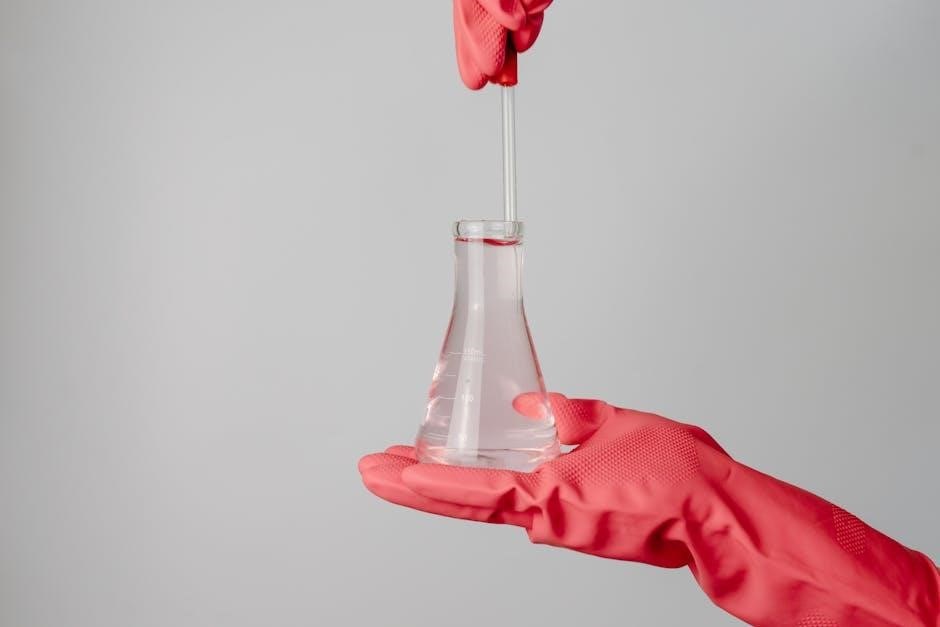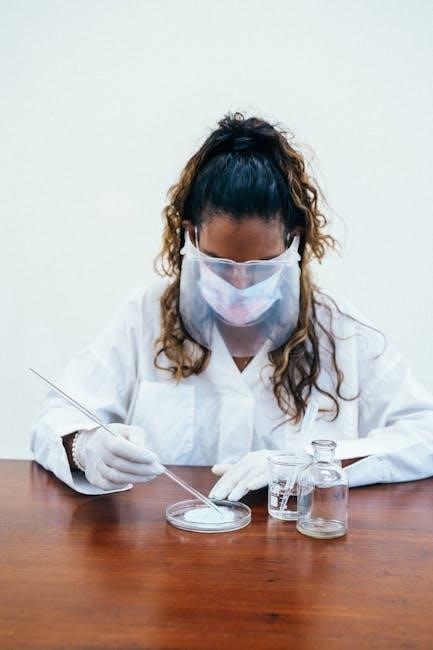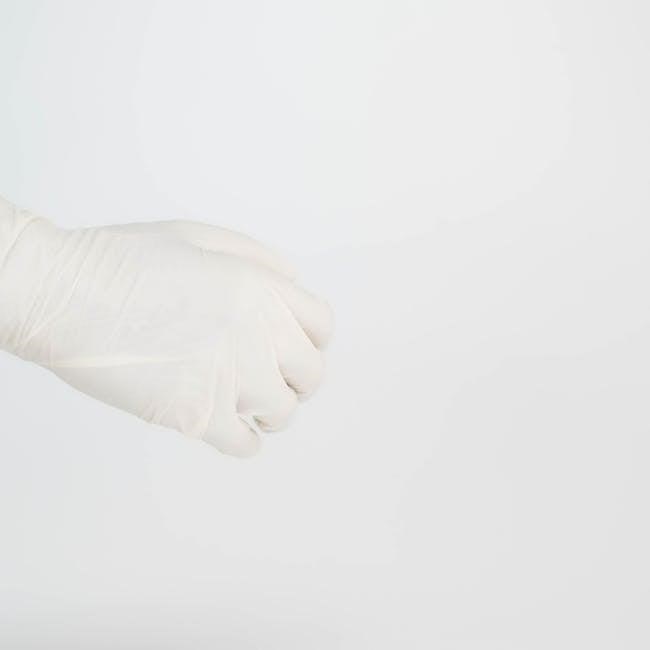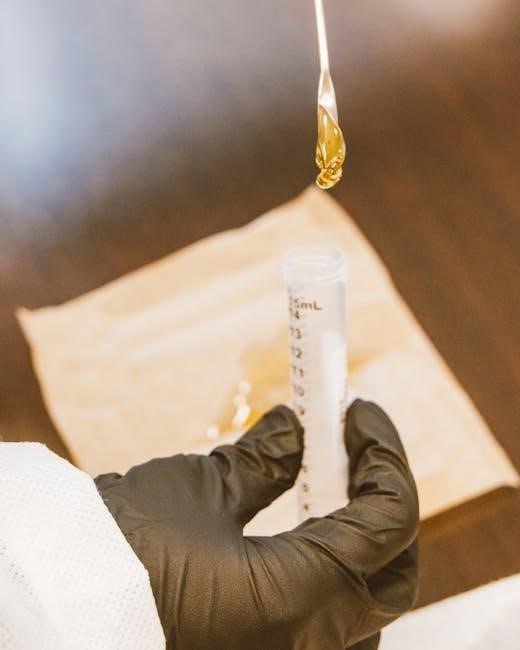Understanding Clean STD Test Results PDF
A clean STD test results PDF indicates no detected infections; It uses antigens to differentiate HSV-1 and HSV-2 but can’t distinguish infection timing. Negative results may require retesting in 4-6 weeks if symptoms persist. Urine tests detect chlamydia or gonorrhea by identifying bacteria or genetic material, providing accurate and quick results for diagnosis and treatment.
Overview of STD Test Results
An STD test results PDF provides a clear summary of your sexual health status. It indicates whether infections like chlamydia, gonorrhea, or herpes (HSV-1/HSV-2) were detected. Clean results mean no infections were found, while positive results require immediate medical attention. Urine or blood tests are commonly used, with results available online or via PDF. Negative results may still need follow-up if symptoms persist. Timing and test accuracy are crucial, as early infections might not be detected. Always consult healthcare professionals for guidance on interpreting and managing your results effectively.
Interpreting Positive, Negative, and Reactive Results
A positive STD test result indicates the presence of an infection, such as chlamydia or gonorrhea, requiring immediate medical attention. Negative results suggest no infection was detected, but early infections may not yet be identifiable. Reactive results, like those for syphilis, indicate the presence of antibodies, which could signify past or current infection. Timing and test accuracy are critical, as false negatives can occur. Always consult a healthcare professional to interpret results accurately and determine the next steps for diagnosis, treatment, or follow-up testing if necessary.

Common STDs Tested and Their Results
Common STDs include Chlamydia, Gonorrhea, Herpes (HSV-1/HSV-2), and Syphilis. Clean test results indicate no infection detected, while positive results confirm the presence of specific pathogens, guiding treatment plans.
Chlamydia and Gonorrhea Test Results
Chlamydia and Gonorrhea tests detect bacterial infections through urine or swabs. Positive results indicate infection, while negative results suggest no detection. Clean PDF reports show “not detected” for absence of pathogens. Urine tests identify bacterial DNA, ensuring accurate diagnosis. Negative results may require retesting if symptoms persist, as early infections might not be detected initially. These tests are crucial for timely treatment and preventing complications. Always consult healthcare providers for interpretation and next steps based on your results.
Herpes (HSV-1 and HSV-2) Test Results
Herpes test results differentiate HSV-1 and HSV-2 using recombinant antigens. A positive result indicates infection but cannot distinguish between recent and past exposure. Negative results may require retesting in 4-6 weeks if symptoms persist, as early infections might not be detected. The assay’s performance for pediatric populations is not established. Clean PDF reports clarify results, but anti-treponemal antibodies can persist post-treatment, complicating interpretation. Consult healthcare providers for guidance, especially if symptoms suggest recent infection despite negative results.

How to Access and Manage STD Test Results PDF
To access your STD test results PDF, log in to your secure online account via the testing service’s portal. Results are typically available within 1-2 days. Once downloaded, save the PDF securely on your device or print it for physical copies. Ensure confidentiality by using encrypted sharing methods if sending electronically. For assistance, contact the testing service’s support team if you encounter any issues accessing or managing your results.
Downloading and Viewing Test Results Online
Accessing your STD test results online is straightforward. Log in to your secure account on the testing service’s portal. Results are usually available within 1-2 days. Once logged in, navigate to the results section and click the download button to save the PDF. Ensure your device has a PDF viewer installed for easy viewing. For security, use encrypted platforms when sharing results. Platforms like DocHub allow editing and signing of PDFs without additional software. Always verify the authenticity of the document before sharing to maintain confidentiality and accuracy.
Editing and Sharing Test Results via PDF
Editing and sharing STD test results via PDF is efficient and secure. Use platforms like DocHub or PDFLiner to edit, sign, and share results without additional software. Fillable templates enable quick form completion, reducing errors. Ensure secure sharing by using encrypted platforms. PDFs can be easily edited and signed online, making it convenient for healthcare providers to review and guide patients. Always verify authenticity before sharing to maintain confidentiality and accuracy in medical records.

Understanding Test Accuracy and Reliability
Test accuracy depends on factors like timing and sample quality. Negative results may require retesting in 4-6 weeks for confirmation, especially if symptoms persist or exposure is suspected.
Factors Affecting STD Test Accuracy
Several factors influence STD test accuracy, including the timing of the test, sample quality, and the presence of antibodies. Early infection stages may yield false negatives, as antibodies may not yet be detectable. Timing is critical, with tests like HSV requiring 4-6 weeks post-exposure for reliability. Sample quality, such as urine or blood specimens, must meet specific criteria to ensure accurate results. Additionally, some tests may detect past infections due to persistent antibodies, even after treatment. Understanding these factors is key to interpreting results accurately and determining the need for retesting.
When to Repeat Testing for Confirmation
Retesting is essential in certain scenarios to confirm STD results. If initial results are negative or equivocal but symptoms persist, retesting is recommended after 4-6 weeks. This timeframe allows antibodies to develop, ensuring accurate detection, especially for infections like HSV-1 or HSV-2. Additionally, if exposure is suspected after a negative result, repeating the test can confirm status. Persistent symptoms or unclear results also warrant retesting to rule out false negatives. Regular follow-up testing is crucial for maintaining sexual health and ensuring timely treatment if needed.

Next Steps After Receiving Test Results
After receiving your STD test results, consult a healthcare professional for guidance. If positive, discuss treatment options and notify partners; Negative results still require safe practices to prevent future infections. Regular follow-up testing is recommended for ongoing sexual health management.
What to Do If Results Are Positive
If your STD test results are positive, seek immediate medical advice. Discuss treatment options with your healthcare provider, which may include antibiotics or antiviral medications. Notify sexual partners anonymously or directly to prevent further transmission. Complete the prescribed treatment regimen to ensure effectiveness. Consider counseling or support groups to cope with emotional impacts. Practice safe sex to avoid reinfection or spreading the infection. Schedule a follow-up test after treatment to confirm clearance and maintain sexual health.
Guidelines for Follow-Up Testing
Follow-up testing is crucial for confirming infection clearance or monitoring ongoing exposure. For STDs like chlamydia and gonorrhea, retest 3-4 months after treatment. Herpes testing may require repeat assays if symptoms persist. If initial results are equivocal, retesting in 4-6 weeks is recommended. Ensure all sexual partners are tested and treated to prevent reinfection. Follow healthcare provider guidelines for timing and frequency of follow-up tests. Regular testing, especially after exposure, is key for maintaining sexual health and preventing complications.
Legal and Privacy Considerations
STD test results are confidential and protected by laws like HIPAA. Unauthorized sharing is illegal without consent. Ensure responsible handling of PDF documents to safeguard personal health information.
Confidentiality of STD Test Results
STD test results are confidential and protected under laws like HIPAA. Digital PDFs are securely stored on encrypted platforms to prevent unauthorized access. Sharing results without consent is illegal, and healthcare providers must adhere to strict privacy protocols. Patients have the right to control who accesses their information. Breaches of confidentiality can lead to legal penalties. Ensuring privacy is crucial to maintaining trust in healthcare services and protecting sensitive personal health information.
Legal Implications of Test Results
Positive STD test results can have legal implications, such as penalties for non-disclosure to partners. In some jurisdictions, knowingly exposing others to STDs can lead to criminal charges. Mandatory reporting of certain STDs to health authorities may occur, ensuring public health safety. False or misleading disclosure of results can result in legal consequences. Patients and healthcare providers must comply with confidentiality laws to avoid legal penalties. Legal professionals can provide guidance on navigating these implications responsibly and ethically.

Additional Resources and Support
Access resources like DocHub for editing and sharing clean STD test results PDFs. Visit health organization websites or consult professionals for guidance on test results and next steps.
Where to Find More Information on STD Testing
For more information on STD testing, visit reputable health websites or platforms like DocHub and LabCorp. These resources offer guides on understanding test results, editing PDF documents, and accessing support. Additionally, official health organization websites provide detailed insights into testing procedures, result interpretation, and necessary follow-up steps. Utilize online tools like PDFLiner for managing and sharing your test results securely. Consulting healthcare professionals or support hotlines can also provide personalized guidance based on your specific needs.
Consulting Healthcare Professionals for Guidance
Consulting healthcare professionals is crucial for interpreting clean STD test results PDF. They provide personalized advice based on your results, address concerns, and explain next steps. Phone consultations are available to discuss results, ask questions, and receive guidance. Healthcare providers can also help determine if retesting is needed or if treatment is required. They offer expert insights into managing your health and preventing future infections. Don’t hesitate to seek professional advice for accurate interpretations and tailored recommendations to ensure your well-being. Their expertise is invaluable for making informed decisions.
